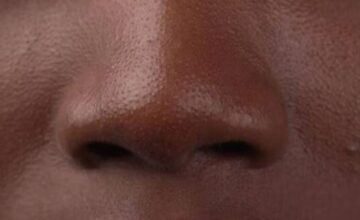
Whether you admit it or not, you may pick your nose unconsciously now and then. In fact, many grown-up people, and not just kids, have a habit of picking their nose.
One of the main reasons why people learn to stop doing it is because the activity is considered gross, especially if you do it around people.
However, scientists have found an important reason to give up on this activity. According to a new study published by Griffith University in the journal Scientific Reports, picking your nose may have some devastating health consequences.
The new research shows that a bacteria can travel through the olfactory nerve in the nose and into the brain in mice, where it creates markers that are a tell-tale sign of Alzheimer’s disease.
How nose-picking can affect your brain
The National Institutes of Health (NIH) US explains Alzheimer’s disease as a brain disorder that slowly destroys memory and thinking skills and, eventually, the ability to carry out the simplest tasks.
In the study conducted on mice, researchers noticed that the olfactory nerve in the nose offers a short pathway to the brain, one which bypasses the blood-brain barrier. Viruses and bacteria can use this pathway as a direct route to the brain.
Professor James St John, Head of the Clem Jones Center for Neurobiology and Stem Cell Research, co-author of the new research, says, “We’re the first to show that Chlamydia pneumoniae can go directly up the nose and into the brain where it can set off pathologies that look like Alzheimer’s disease. We saw this happen in a mouse model, and the evidence is potentially scary for humans as well.”
Explaining the findings
The team found that Chlamydia pneumoniae (a type of bacteria that causes respiratory tract infections such as pneumonia) used the nerve extending between the nasal cavity and the brain as a direct path to reach the central nervous system.
The cells in the brain then reacted by depositing amyloid beta protein, which is a key precursor to the development of Alzheimer’s disease.
Previous research confirms the findings
A study last year found that the leakage of a specific toxic compound in the bloodstream might be the fundamental cause of Alzheimer’s disease. The researchers discovered that beta-amyloids form outside of the brain and are then pushed through the body’s bloodstream via lipoproteins.
This study also involved mice and was published in the journal Plos Biology. “This ‘blood-to-brain pathway’ is significant because if we can manage the levels in blood of lipoprotein-amyloid and prevent their leakage into the brain, this opens up potential new treatments to prevent Alzheimer’s disease and slow memory loss,” the researchers noted.
Are the risks the same in humans?
The team still needs to prove that the same pathway through the olfactory nerve in the nose and into the brain exists in humans and can be used similarly by nefarious viruses and bacteria.
“We need to do this study in humans and confirm whether the same pathway operates in the same way. It’s research that has been proposed by many people, but not yet completed. What we do know is that these same bacteria are present in humans, but we haven’t worked out how they get there,” professor St John notes.
Plucking hairs from nose is also risky
“Picking your nose and plucking the hairs from your nose are not a good idea. We don’t want to damage the inside of our nose and picking and plucking can do that. If you damage the lining of the nose, you can increase how many bacteria can go up into your brain,” professor St John explains.
To lower the risks of developing late-onset Alzheimer’s disease, he further recommends smell tests for those 60 years and older. This can help to diagnose development of Alzheimer’s and dementia early.




